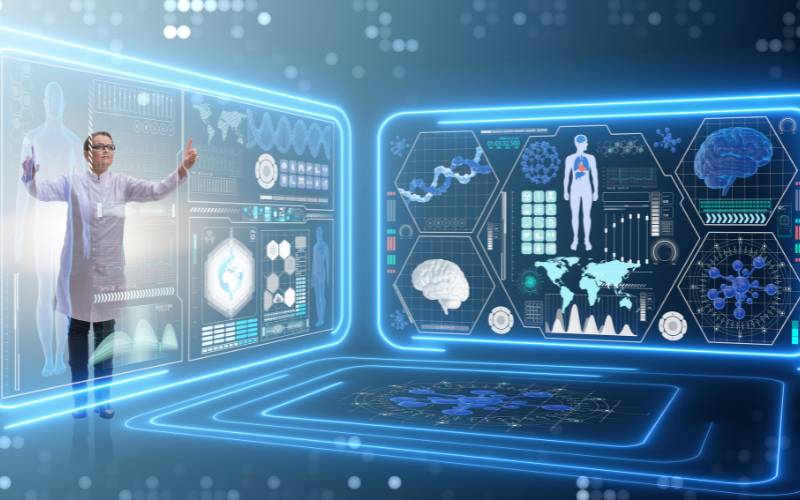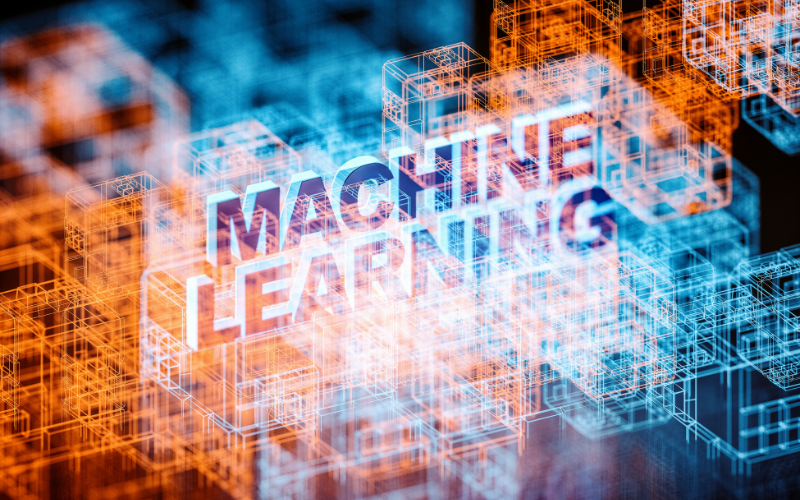Revolutionizing Healthcare: The Indispensable Role of AI Technology
Introduction
In the 21st century, technological advancements are reshaping every facet of our lives, and nowhere is this more evident than in the field of healthcare. Artificial Intelligence (AI) has emerged as a transformative force, revolutionizing the way medical professionals diagnose, treat, and manage patients. With its ability to analyze vast amounts of data, detect patterns, and offer real-time insights, AI is playing an indispensable role in healthcare, enhancing efficiency, accuracy, and patient outcomes.
-
Diagnosis and Disease Prediction
One of the most promising applications of AI in healthcare is in the realm of diagnosis. AI-powered algorithms can analyze medical images such as X-rays, MRIs, and CT scans with remarkable precision. These algorithms can spot abnormalities, subtle changes, or anomalies that might be overlooked by human eyes. In fact, studies have shown that AI algorithms can often detect diseases like cancer and diabetic retinopathy earlier and more accurately than human experts. This not only leads to faster diagnosis but also increases the chances of successful treatment.
AI is also proving invaluable in predicting diseases. By analyzing an individual's medical history, genetics, and lifestyle data, AI can identify patterns and risk factors that could indicate the likelihood of developing certain conditions. This proactive approach allows healthcare providers to intervene earlier, offering personalized preventive care and reducing the burden of chronic diseases.
2. Personalized Treatment Plans
Every patient is unique, and AI is helping healthcare professionals tailor treatment plans to individual needs. By analyzing patient data, AI algorithms can recommend personalized medication dosages, and treatment options, and even suggest lifestyle changes. This not only improves patient outcomes but also reduces the risk of adverse reactions to medications.
Moreover, AI-powered tools are streamlining the drug discovery process. AI can analyze massive datasets to identify potential drug candidates, predict their effectiveness, and even simulate the interactions between drugs and the human body. This expedites the research and development of new treatments, ultimately bringing novel therapies to patients faster.
3. Remote Monitoring and Telemedicine
AI-enabled devices and wearables are empowering patients to take charge of their health from the comfort of their homes. These devices can continuously monitor vital signs, track symptoms, and alert healthcare providers if any concerning changes are detected. This is particularly beneficial for patients with chronic conditions like diabetes, heart disease, or respiratory disorders.
Telemedicine, which has seen a surge in adoption, is also benefiting from AI integration. Virtual consultations powered by AI can assist doctors by collecting patient history, symptoms, and even suggesting potential diagnoses based on the information provided. This not only saves time but also extends healthcare access to remote and underserved areas.
4. Enhanced Research and Data Analysis
In the field of medical research, AI is significantly speeding up the process of data analysis. Researchers can leverage AI algorithms to sift through mountains of medical literature, identify relevant studies, and extract crucial insights. This expedites the research process, allowing scientists to focus more on innovative discoveries and less on manual data analysis.
Additionally, AI is facilitating the analysis of massive genomic datasets, enabling researchers to uncover genetic links to diseases, identify biomarkers, and develop more targeted therapies. This precision medicine approach holds immense promise for the future of healthcare.
Conclusion
The integration of AI into healthcare technology is a transformative journey that holds the potential to redefine medical practices as we know them. From accurate diagnoses and personalized treatment plans to remote monitoring and innovative research, AI is playing a pivotal role in shaping a more efficient, effective, and patient-centric healthcare landscape. As AI technology continues to evolve, its impact on healthcare is bound to become even more profound, offering hope for improved patient outcomes and a healthier global population.




